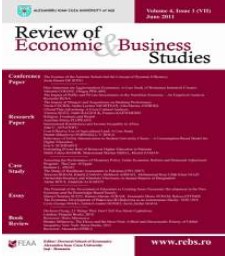RELEVANCE OF UTILITY MAXIMIZATION IN STUDENT UNIVERSITY CHOICE – A CONSUMPTION BASED MODEL FOR HIGHER EDUCATION
RELEVANCE OF UTILITY MAXIMIZATION IN STUDENT UNIVERSITY CHOICE – A CONSUMPTION BASED MODEL FOR HIGHER EDUCATION
Author(s): Eric S. SCHWARTZSubject(s): Higher Education , Sociology of Education
Published by: Editura Universităţii »Alexandru Ioan Cuza« din Iaşi
Keywords: College choice; consumer behavior; higher education; human capital; student-choice model;
Summary/Abstract: This paper applies a model of utility-maximization to better understand the university choice process. Student decision-making for university choice is conceptualized as a purchase decision process through which students weigh the costs of colleges or universities they choose against their perceived benefits of attending these institutions. The key issues are the impact of consumer’s preferences, income, tuition, and costs in college decision-making. From this perspective, the paper describes the relationship between utility maximization and educational demand, effects of tuition increases, tuition discounting, and financial aid subsidies on university choice. A decision-making scheme for educational consumption is used in order to identify the stages of the university choice process and to predict the behavior of consumers in the higher education marketplace. The analysis points to the need to better inform students about the cost of postsecondary education which is a highly relevant aspect in the university choice process.
Journal: Review of Economic and Business Studies (REBS)
- Issue Year: 2011
- Issue No: 7
- Page Range: 157-177
- Page Count: 21
- Language: English

